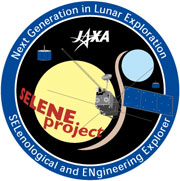There’s a long article in the New Yorker about Nathan Myhrvold, former Microsoft exec, and his new company Intellectual Ventures. The article is fascinating on multiple levels. For one thing, there is the intriguing business model behind IV itself – they get a lot of smart people in a room, get them talking and free-associating, and then patent whatever ideas they come up with. They then license those patents for revenue. Just one example of the kind of potentially world-changing ideas they have licensed: nuclear micro-reactors that use spent nuclear waste as their fuel:
“Teller had this idea way back when that you could make a very safe, passive nuclear reactor,†Myhrvold explained. “No moving parts. Proliferation-resistant. Dead simple. Every serious nuclear accident involves operator error, so you want to eliminate the operator altogether. Lowell and Rod and others wrote a paper on it once. So we did several sessions on it.â€
The plant, as they conceived it, would produce something like one to three gigawatts of power, which is enough to serve a medium-sized city. The reactor core would be no more than several metres wide and about ten metres long. It would be enclosed in a sealed, armored box. The box would work for thirty years, without need for refuelling. Wood’s idea was that the box would run on thorium, which is a very common, mildly radioactive metal. (The world has roughly a hundred-thousand-year supply, he figures.) Myhrvold’s idea was that it should run on spent fuel from existing power plants. “Waste has negative cost,†Myhrvold said. “This is how we make this idea politically and regulatorily attractive. Lowell and I had a monthlong no-holds-barred nuclear-physics battle. He didn’t believe waste would work. It turns out it does.†Myhrvold grinned. “He concedes it now.â€
As Myhrvold notes, he has more engineers working on nuclear power technology than G.E., which is both impressively cool and depressingly scary if you think about it.
But the deeper subtext to the article is the idea that ideas themselves are commodities. It’s long been known that some of the greatest scientific triumphs in history weren’t the product of isolated genius but rather arose simultaneously in many inventors’ minds, simultaneously. The article delves into the history of this in some depth. The provocative conclusion that can be made is that genius inventors are great at synthesis, not invention – and synthesis only requires that the supporting ideas be known. It’s something that can be replicated by brute force:
Insight could be orchestrated: that was the lesson. If someone who knew how to make a filter had a conversation with someone who knew a lot about cancer and with someone who read the medical literature like a physicist, then maybe you could come up with a cancer treatment. It helped as well that Casey Tegreene had a law degree, Lowell Wood had spent his career dreaming up weapons for the government, Nathan Myhrvold was a ball of fire, Edward Jung had walked across Texas. They had different backgrounds and temperaments and perspectives, and if you gave them something to think about that they did not ordinarily think about—like hurricanes, or jet engines, or metastatic cancer—you were guaranteed a fresh set of eyes.
[…]
In the nineteen-sixties, the sociologist Robert K. Merton wrote a famous essay on scientific discovery in which he raised the question of what the existence of multiples tells us about genius. No one is a partner to more multiples, he pointed out, than a genius, and he came to the conclusion that our romantic notion of the genius must be wrong. A scientific genius is not a person who does what no one else can do; he or she is someone who does what it takes many others to do. The genius is not a unique source of insight; he is merely an efficient source of insight.
So, since geniuses are rare, just replace them with a lot of smart people, and you shoudl be able to replicate most of the insight. It’s analogous to parallel, multi-core computing instead of the old days of a single gigahertz chip.
A truly thought-provoking article indeed.


